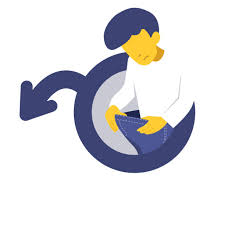
Erectile Dysfunction – What is the truth?
Erectile Dysfunction (ED) is the inability to maintain a firm erection for sexual activity, which can occur at any age, not just in older men. While occasional difficulty with erections is common, persistent ED can lead to stress, relationship issues, and low self-esteem. Formerly seen as a taboo topic, ED is now understood to be primarily caused by physical factors rather than psychological ones, and many men have normal erections well into their 80s. Seek help from a doctor for treatment options, which can include medications or surgery to restore sexual function. Don’t be embarrassed to discuss ED with your healthcare provider, as finding a solution is important.
Physical Causes
Erectile dysfunction is not just caused by psychological issues; it can also be due to physical factors like chronic health conditions or medication side effects. Factors like heart disease, high blood pressure, diabetes, obesity, and certain medications can contribute to erectile dysfunction. Other causes include Parkinson’s disease, hormonal imbalances, surgeries/injuries in the pelvic area, and more. It is often a combination of factors that lead to erectile dysfunction, not just one.
Psychological Causes
The brain is crucial in initiating the process of an erection, starting with sexual arousal. Factors like depression, anxiety, stress, fatigue, poor communication with a partner, and physical issues can impact sexual feelings and contribute to erectile dysfunction. Physical and psychological causes can be intertwined, with a minor physical issue causing anxiety, which then worsens the dysfunction.
Risk Factor
Around 80 percent of men aged 75 and older experience erectile dysfunction, which can be caused by various factors. Normal aging may lead to changes in sexual function, such as longer erection times or the need for more direct stimulation. However, erectile dysfunction is not inevitable with age. Health conditions like diabetes, heart disease, and nerve disorders can contribute to this issue. Medications for various health issues, including high blood pressure and prostate cancer, can also interfere with erectile function. Smoking, substance abuse, obesity, and metabolic syndrome are risk factors for erectile dysfunction. Chronic use of alcohol, marijuana, or certain medications can impact sexual health. Stress, anxiety, and depression can also play a role in erectile dysfunction. Injuries or surgeries affecting the nerves controlling erections can result in this condition. Prolonged bicycling can compress nerves and blood flow to the penis, causing temporary erectile dysfunction. Addressing underlying health issues and making lifestyle changes may help improve erectile function in older men.
Porn-induced Erectile Dysfunction (PIED)
Porn-induced Erectile Dysfunction (PIED) is a form of impotence that affects younger men due to excessive use of pornography, causing mental rather than physical issues. Many young individuals have had access to porn since middle school, which can lead to difficulties achieving and maintaining an erection with a real sexual partner. ED medications may not work in these cases, as the problem lies in the brain rather than the body.
Dr. Abraham Morgentaler, a urologist and Director of Men’s Health Boston, is concerned about the impact of constant online porn exposure on sexual behavior. He notes that the porn industry has mastered the art of stimulating the brain in ways that can be addictive, leading to changes in both psychology and biochemistry. Research suggests that excessive porn consumption can alter dopamine levels, similar to substance addiction.
Symptoms of PIED can include irritability, anxiety, insecurity, depression, and physical issues like lack of appetite and insomnia. In severe cases, individuals may even experience suicidal thoughts. The key to overcoming PIED is to stop watching porn and masturbating for a period of time to allow the brain to reset, known as “rebooting. ” This process involves staying active and focusing on self-care to restore normal sexual functioning.
It is important for those experiencing PIED to seek help from medical professionals, as some may mistakenly attribute their symptoms to performance anxiety. By addressing the root cause of PIED and making lifestyle changes, individuals can improve their sexual health and well-being.
What You Can Do
Many men experience erectile dysfunction (ED) as they age, but there are ways to prevent it. Eating a heart-healthy diet rich in fruits, vegetables, nuts, lean protein, and whole grains can improve sexual function. The Mediterranean diet, which includes heart-healthy fats, fish, beans, and legumes, has been shown to reduce ED.
Maintaining a healthy weight is crucial, as excess fat can lead to diabetes and nerve damage. High cholesterol and blood pressure can also cause erectile issues by damaging blood vessels. Regular check-ups with your doctor and monitoring your blood pressure at home can help prevent complications.
Blood pressure medications can impact sexual function, but often the real issue is arterial damage. Lack of exercise has also been linked to ED, so incorporating aerobic activities like swimming, running, or cycling into your routine can be beneficial.
Avoid activities that strain the perineum area, as damage here can lead to ED. Managing stress, quitting smoking, avoiding anabolic steroids, and monitoring testosterone levels can all contribute to maintaining sexual health. Taking care of your mental and physical well-being is essential for a healthy sex life and overall health.
In conclusion, practicing good lifestyle habits, such as eating a balanced diet, staying active, managing stress, and avoiding harmful substances, can help prevent erectile dysfunction and promote overall well-being.
